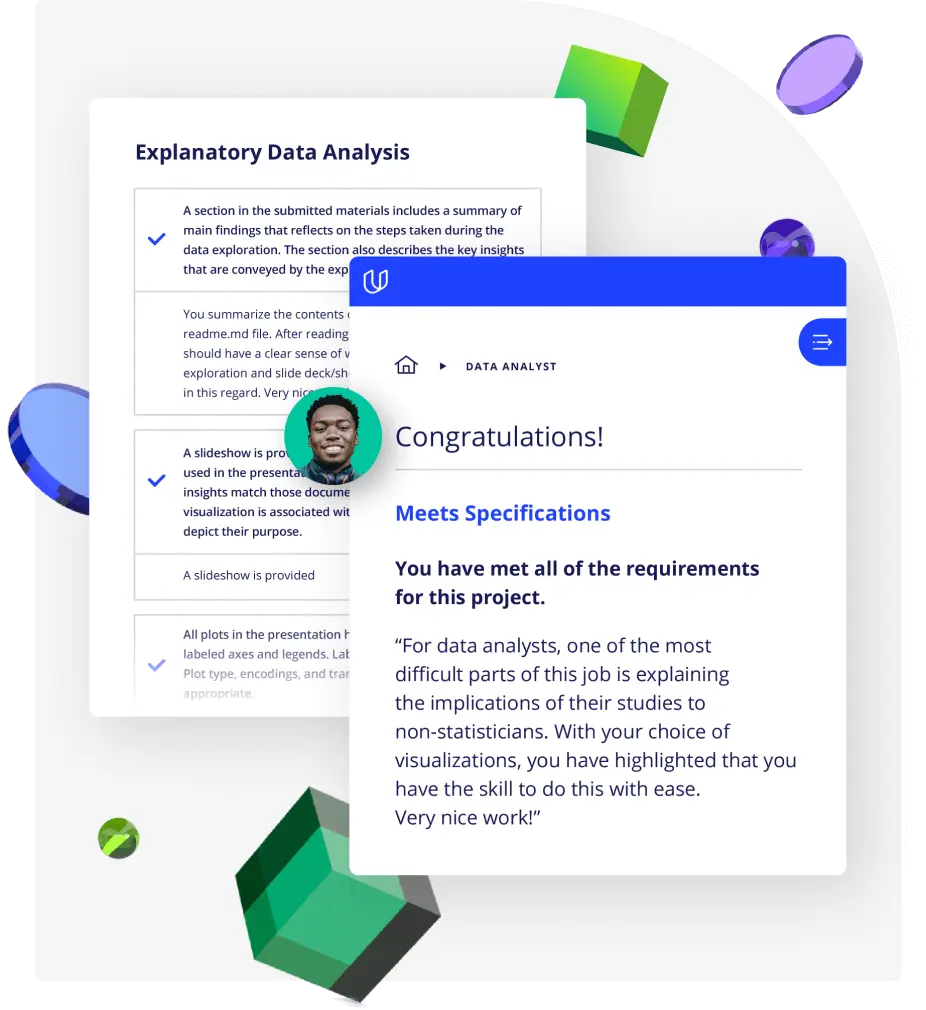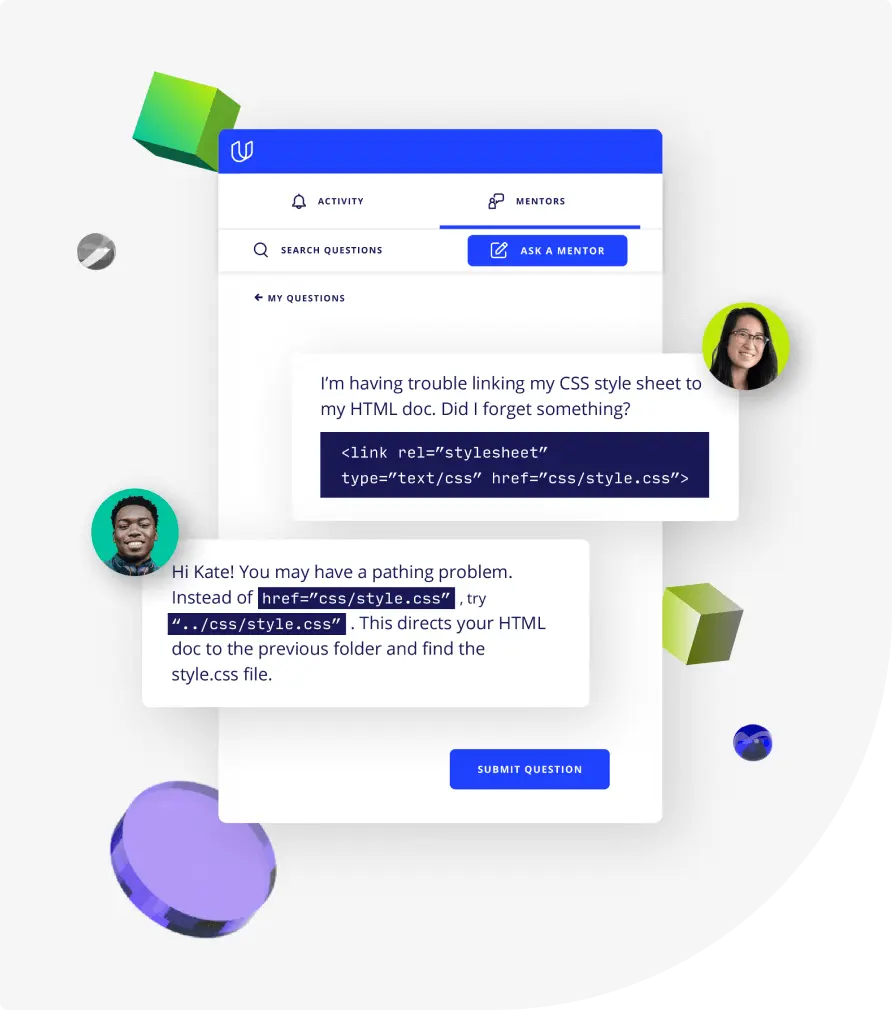Lesson 1
Introduction to Reproducible Model Workflows
Dive into reproducible model workflows and machine learning operations, learning about use cases, its history, and what you'll build at the end of the course.

Course
This course empowers the students to be more efficient, effective, and productive in modern, real-world ML projects by adopting best practices around reproducible workflows. In particular, it teaches the fundamentals of MLops and how to: a) create a clean, organized, reproducible, end-to-end machine learning pipeline from scratch using MLflow b) clean and validate the data using pytest c) track experiments, code, and results using GitHub and Weights & Biases d) select the best-performing model for production and e) deploy a model using MLflow. Along the way, it also touches on other technologies like Kubernetes, Kubeflow, and Great Expectations and how they relate to the content of the class.
This course empowers the students to be more efficient, effective, and productive in modern, real-world ML projects by adopting best practices around reproducible workflows. In particular, it teaches the fundamentals of MLops and how to: a) create a clean, organized, reproducible, end-to-end machine learning pipeline from scratch using MLflow b) clean and validate the data using pytest c) track experiments, code, and results using GitHub and Weights & Biases d) select the best-performing model for production and e) deploy a model using MLflow. Along the way, it also touches on other technologies like Kubernetes, Kubeflow, and Great Expectations and how they relate to the content of the class.
Advanced
4 weeks
Real-world Projects
Completion Certificate
Last Updated June 5, 2024
Skills you'll learn:
Prerequisites:
Lesson 1
Dive into reproducible model workflows and machine learning operations, learning about use cases, its history, and what you'll build at the end of the course.
Lesson 2
Build out machine learning pipelines, as well as learning how to version data and model artifacts.
Lesson 3
Come up with re-usable processes for performing exploratory data analysis (EDA), cleaning and pre-processing data, and segregating/splitting data.
Lesson 4
Validate data through deterministic and non-deterministic testing, and look at handling different parameters with PyTest.
Lesson 5
Write an inference pipeline, validate and choose your best performing models from experiments, and test your final model artifacts.
Lesson 6
Write a full end-to-end pipeline, release the pipeline, and deploy with MLflow.
Lesson 7 • Project
Create a re-usable end-to-end pipeline for predicting short-term rental prices in New York City!

Principal Data Scientist
Giacomo Vianello is an end-to-end data scientist with a passion for state-of-the-art but practical technical solutions. He is Principal Data Scientist at Cape Analytics, where he develops AI systems to extract intelligence from geospatial imagery bringing, cutting-edge AI solutions to the insurance and real estate industries.
Combine technology training for employees with industry experts, mentors, and projects, for critical thinking that pushes innovation. Our proven upskilling system goes after success—relentlessly.

Demonstrate proficiency with practical projects
Projects are based on real-world scenarios and challenges, allowing you to apply the skills you learn to practical situations, while giving you real hands-on experience.
Gain proven experience
Retain knowledge longer
Apply new skills immediately

Top-tier services to ensure learner success
Reviewers provide timely and constructive feedback on your project submissions, highlighting areas of improvement and offering practical tips to enhance your work.
Get help from subject matter experts
Learn industry best practices
Gain valuable insights and improve your skills

Unlimited access to our top-rated courses
Real-world projects
Personalized project reviews
Program certificates
Proven career outcomes
Full Catalog Access
One subscription opens up this course and our entire catalog of projects and skills.
Average time to complete a Nanodegree program
(87)
4 months
, Advanced
4 weeks
, Intermediate
3 weeks
, Intermediate
(909)
4 months
, Intermediate
(256)
2 months
, Intermediate
4 weeks
, Intermediate
(235)
3 months
, Intermediate
(328)
2 months
, Advanced
3 days
, Intermediate
7 hours
, Fluency
4 weeks
, Intermediate
1 month
, Intermediate
4 weeks
, Intermediate
4 weeks
, Intermediate
4 weeks
, Intermediate
(275)
2 months
, Advanced

Building a Reproducible Model Workflow
(87)
4 months
, Advanced
4 weeks
, Intermediate
3 weeks
, Intermediate
(909)
4 months
, Intermediate
(256)
2 months
, Intermediate
4 weeks
, Intermediate
(235)
3 months
, Intermediate
(328)
2 months
, Advanced
3 days
, Intermediate
7 hours
, Fluency
4 weeks
, Intermediate
1 month
, Intermediate
4 weeks
, Intermediate
4 weeks
, Intermediate
4 weeks
, Intermediate
(275)
2 months
, Advanced